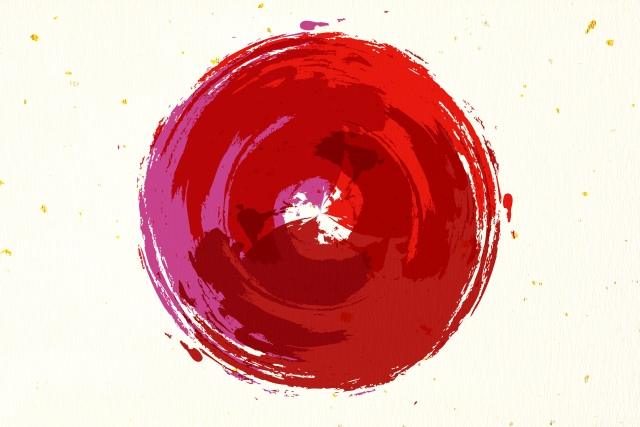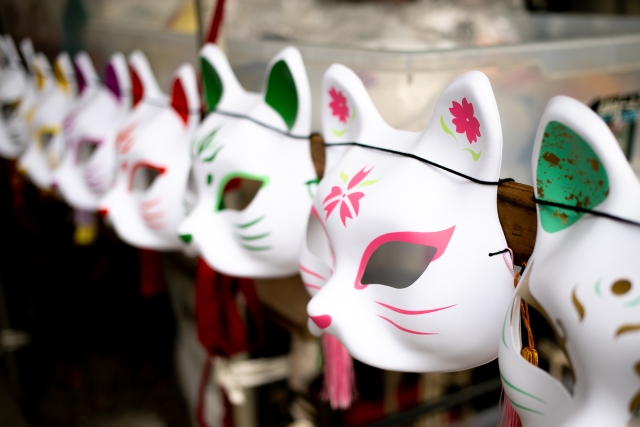Introduction to ‘Late Night! The Genius Bakabon’

Dive into the whimsical and unpredictable world of “Late Night! The Genius Bakabon,” an anime that has carved a unique niche in the realm of Japanese animation with its blend of humor, absurdity, and satirical wit. This series, a modern revival of a classic manga by Fujio Akatsuka, continues to capture the hearts of viewers with its delightful chaos and offbeat jokes.
Historical Significance and Revival “Late Night! The Genius Bakabon” originally debuted as a manga in the late 1960s and quickly gained popularity for its groundbreaking humor and quirky characters. The series has seen various adaptations over the decades, each bringing Bakabon’s bizarre world to new generations. The latest installment, titled “Late Night! The Genius Bakabon,” reintroduces these beloved characters with a fresh twist, maintaining the essence that made the original a cult favorite while updating its themes for contemporary audiences.
Meet the Unconventional Family At the heart of the series is Bakabon’s Papa, often considered the true protagonist, despite the title. His unconventional logic and nonsensical wisdom lead his family and neighbors into hilarious predicaments that often satirize societal norms and question common sense. Bakabon, the ostensibly nominal character, alongside his mother, brother, and the infamous neighborhood residents, including the cunning Policeman and the mysterious Unagi-Inu (Eel Dog), create a dynamic cast that engages in antics which leave the audience both bewildered and amused.
The family’s escapades are not just for laughs; they often reflect deeper commentary on human nature and societal structures, making “Late Night! The Genius Bakabon” a series that is as thought-provoking as it is entertaining. From dealing with everyday challenges in the most unconventional ways to interacting with aliens and ghosts, no scenario is too outlandish for this show, providing a perfect setup for limitless humor and unexpected outcomes.
Why Watch ‘Late Night! The Genius Bakabon’? “Late Night! The Genius Bakabon” stands out for its ability to blend slapstick comedy with a sharp critique of societal norms, all through the absurd antics of Bakabon’s Papa and his eccentric family. This series offers not just laughs but a unique lens through which to view the ordinary, making it a must-watch for fans of comedy and satire. As it continues to charm audiences with its peculiar style and humor, “Late Night! The Genius Bakabon” reaffirms its place in the anime world as a beloved series that transcends traditional comedic boundaries.
Join Bakabon and his family as they navigate the ridiculousness of life in ways that will surprise, delight, and provoke thought, ensuring every episode is an adventure into the absurd. Whether you’re new to the series or a longtime fan, “Late Night! The Genius Bakabon” promises a refreshing departure from the ordinary, where laughter and satire meet in perfect harmony.
Plot and Themes

Dive into the delightfully chaotic world of “Late Night! The Genius Bakabon,” where each episode cleverly uses absurdity and humor to reflect on societal norms. This series, known for its unpredictable plot structure, delivers a satirical exploration of everyday life, making profound comments on common social practices and behaviors through its uniquely quirky narrative style.
Plot Structure and Thematic Exploration “Late Night! The Genius Bakabon” does not adhere to a conventional plot structure. Instead, it thrives on episodic chaos, where each segment introduces a new, often bizarre scenario that Bakabon’s family navigates. This structure allows the series to remain fresh and unpredictable, as viewers never know what outlandish situations Bakabon’s Papa will stumble into next. From attempts to sell the family house without moving out to starting businesses that defy logic, the plot serves as a perfect backdrop for comedic genius.
Recurrent Themes and Societal Commentary Central to the series are themes of conformity versus absurdity. Bakabon’s Papa often acts as the catalyst for chaos, questioning the status quo with his illogical yet strangely profound antics. These themes are explored through scenarios that exaggerate everyday situations to reveal the absurdity often present in societal norms. For instance, when Bakabon’s Papa decides to create a school where the course of study is entirely based on how to become a fool, the show critiques the rigid, often arbitrary structures of educational systems.
Use of Absurdity and Humor The genius of “Late Night! The Genius Bakabon” lies in its ability to use absurdity not just for entertainment but as a form of social critique. The humor is derived from overturning normal expectations—for example, a zoo where humans are found in cages while animals roam free critiques the human-centric view of the world. This inversion of roles and expectations forces the audience to reevaluate their perceptions of normalcy and logic.
Commentary on Societal Norms Each episode acts as a microcosm of larger societal comments, whether addressing corporate life, family dynamics, or consumer culture. Bakabon’s Papa, with his unconventional approaches to common problems, often highlights the irrationality of widely accepted practices. His solutions, though nonsensical, typically expose the flaws and complexities of societal norms, suggesting that perhaps ‘normal’ isn’t always synonymous with ‘sensible.’
In conclusion, “Late Night! The Genius Bakabon” is more than just a comedic series—it’s a sharp, satirical critique wrapped in absurdity and humor. It challenges viewers to laugh but also to think, making it a profound addition to the landscape of comedic anime. As it continues to delight and provoke, the series secures its place as a cultural icon, reminding us that sometimes, the best way to understand society is by turning it on its head. Whether you’re new to the series or revisiting it, each episode promises a fresh perspective on the quirky side of everyday life, making “Late Night! The Genius Bakabon” a must-watch for those who appreciate humor with depth.
Character Analysis

Delve into the brilliantly bizarre world of “Late Night! The Genius Bakabon,” focusing on the comedic genius of its characters, particularly Bakabon’s Papa, whose nonsensical wisdom not only drives the narrative but also serves as the cornerstone of the show’s humor. This character analysis explores the unique contributions of the series’ main figures and how they collectively amplify the comedic essence of this iconic anime.
Bakabon’s Papa: The Heart of Absurdity At the center of “Late Night! The Genius Bakabon” is Bakabon’s Papa, often considered the true protagonist despite the show’s title. Known for his unconventional logic and quirky problem-solving methods, Bakabon’s Papa embodies the spirit of the series. His approach to life’s challenges, ranging from the mundane to the surreal, consistently defies expectations and societal norms. Whether he’s redefining what it means to go to school or launching absurd business ventures, his actions often result in hilarious outcomes that reflect a subtle yet sharp critique of modern society.
His character is a parody of the ‘wise fool,’ whose foolishness often reveals deeper truths about the world. His peculiar brand of wisdom is not just for laughs; it challenges viewers to question the rationale behind societal norms and the definition of ‘common sense.’ Bakabon’s Papa’s antics, which often involve his entire family and the unsuspecting public, highlight the thin line between sanity and madness, making him a beloved figure in the realm of comedic anime.
Supporting Cast and Their Roles The comedic impact of “Late Night! The Genius Bakabon” is significantly enhanced by its ensemble of supporting characters. Bakabon, the nominal protagonist, plays the straight man to his father’s outlandish antics, providing a grounding contrast that highlights the absurdity of the situations they find themselves in. His mother, often the voice of reason, attempts to maintain a semblance of normalcy, creating a comedic tension that adds depth to the family dynamics.
Other characters, like the mischievous Unagi-Inu and the neighborhood policeman, contribute to the chaos and humor of each episode. Unagi-Inu, a surreal character who is part dog and part eel, brings a unique brand of unpredictability that complements Bakabon’s Papa’s schemes. The policeman, constantly bewildered by the family’s antics, represents societal authority but often finds himself outwitted or drawn into their absurd world, further satirizing the effectiveness and role of law enforcement in society.
Conclusion “Late Night! The Genius Bakabon” thrives on the dynamic interactions between Bakabon’s Papa and the supporting cast, creating a comedy that is both entertaining and thought-provoking. The characters’ ability to turn everyday scenarios into ludicrous adventures speaks volumes about the show’s creative narrative approach. As Bakabon’s Papa continues to redefine logic in the most hilarious ways possible, he ensures that “Late Night! The Genius Bakabon” remains a seminal work in comedic anime, beloved for its ability to make audiences laugh while subtly prompting them to think critically about the world around them.
This character analysis not only highlights the humorous antics of Bakabon’s Papa and his family but also underscores the ingenious storytelling that “Late Night! The Genius Bakabon” brings to its audience, making it a timeless favorite in the world of anime.
Cultural Impact

Explore the profound cultural impact of “Late Night! The Genius Bakabon,” a series that has left an indelible mark on Japanese comedy and anime. Known for its unique blend of humor and absurdity, this show has not only entertained audiences but also influenced the trajectory of comedic anime and broader popular culture in Japan.
Cultural Significance in Japan “Late Night! The Genius Bakabon” originated from the manga by Fujio Akatsuka, often hailed as one of the kings of Japanese comedy manga. The transition of Bakabon from print to screen brought with it a fresh wave of comedic style characterized by nonsensical humor and satirical portrayals of Japanese society. This approach resonated deeply with audiences, offering a humorous reflection on everyday life while also providing a critique of societal norms and expectations. The show’s ability to blend traditional Japanese comedic elements with surreal modern scenarios made it a pioneering force in the genre.
Influence on Comedic Anime Bakabon’s unique brand of comedy has had a lasting influence on the anime industry. The series broke new ground with its format and storytelling approach, setting a precedent for subsequent anime. Shows such as “Gintama” and “Osomatsu-san,” which also derive from Akatsuka’s works, have followed in Bakabon’s footsteps, using similar styles of humor that combine the absurd with the relatable. Bakabon’s legacy can be seen in these series’ willingness to push comedic boundaries, experimenting with meta-humor and breaking the fourth wall, which have become more prevalent in anime over the years.
Impact on Popular Culture Beyond anime, “Late Night! The Genius Bakabon” has permeated various facets of Japanese pop culture, influencing everything from anime to mainstream media and advertising. The characters and iconic catchphrases from the series have become part of the colloquial language, often used in a humorous context in everyday conversation. Additionally, Bakabon’s Papa, with his distinctive, unconventional wisdom, has been featured in numerous advertising campaigns, demonstrating the character’s enduring appeal and the series’ cultural relevance.
Legacy and Continuing Influence The continued relevance of “Late Night! The Genius Bakabon” is a testament to its impact. The series not only paved the way for more experimental forms of storytelling in anime but also contributed to a broader acceptance of absurdity and satire as effective tools for commentary and entertainment. Anniversaries and reboots of the series continue to attract new fans and reignite the enthusiasm of long-time viewers, ensuring that Bakabon’s influence endures in the ever-evolving landscape of Japanese entertainment.
In conclusion, “Late Night! The Genius Bakabon” is much more than a comedic anime; it is a cultural phenomenon that has shaped the genre and left a lasting legacy on Japanese popular culture. Its innovative approach to comedy and its ability to engage with cultural themes through humor have cemented its status as a cornerstone of Japanese anime, continually influencing new generations of creators and entertainers.
Reception and Legacy

Delve into the reception and enduring legacy of “Late Night! The Genius Bakabon,” a series that has captivated diverse audiences over the decades and influenced various media forms. This comedic gem, originating from Fujio Akatsuka’s manga, continues to resonate with fans for its unique blend of humor and societal commentary.
Broad and Diverse Reception “Late Night! The Genius Bakabon” has enjoyed a varied reception since its debut, appealing to audiences with its distinctive style of humor that pushes the boundaries of conventional anime comedy. Initially, the series garnered attention for its absurd and sometimes surreal comedic sketches, which mirrored the quirks and idiosyncrasies of everyday Japanese life. Over the years, the show’s appeal broadened as it came to be appreciated not only for its entertainment value but also for its sharp satirical edge, which made it a topic of discussion among critics and scholars alike.
The series has been particularly lauded for how it handles the antics of Bakabon’s Papa, whose illogical yet insightful actions often lead to humorous yet thought-provoking scenarios. This character became a cultural icon, embodying the spirit of rebellion against societal norms, which resonated with many viewers, particularly during times of social change.
Legacy and Influence on Media The legacy of “Late Night! The Genius Bakabon” extends beyond its original run on television. The series has seen several adaptations and revivals, each bringing the beloved characters and their eccentricities to new generations. These adaptations have varied in style and interpretation but consistently maintain the core essence of Akatsuka’s original work, emphasizing creativity and the subversion of traditional norms.
Moreover, “Late Night! The Genius Bakabon” has had a considerable impact on other media forms. It has inspired a range of works from animated series to live-action adaptations, and even theatrical productions. Each adaptation explores different facets of the original series while staying true to its comedic roots. The show’s influence is also evident in how it paved the way for other comedies in anime, encouraging a more flexible approach to the genre and inspiring creators to experiment with narrative and stylistic elements.
Continued Popularity and Relevance Today, “Late Night! The Genius Bakabon” continues to be celebrated for its innovative approach to comedy and its ability to engage with audiences on multiple levels. The series’ reruns and adaptations keep attracting new fans, while its classic episodes remain popular among long-time followers. The ongoing interest in the series underscores its significant place in the history of anime and its continued relevance in contemporary pop culture discussions.
In conclusion, “Late Night! The Genius Bakabon” stands as a monumental work in the world of anime, its reception over the years highlighting its universal appeal and timeless humor. The series not only entertains but also provokes thought, challenging viewers to reconsider societal norms through laughter and satire. Its legacy is a testament to its quality and enduring charm, ensuring that Bakabon and his unconventional family will continue to delight and inspire audiences for years to come.








